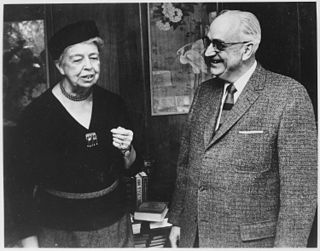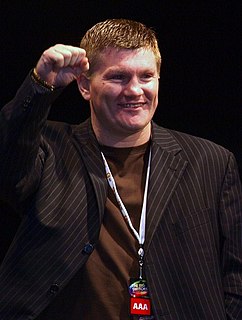A Quote by Brandon Sanderson
Spook smiled. "Elend is a forgetful scholar - twice as bad as Sazed ever was. He gets lost in his books and forgets about meeting he himself called. He only dresses with any sense of fashion because a Terriswoman bought him a new wardrobe. War has change him some, but on the inside, I think he's still just a dreamer caught in a world with too much violence.
Related Quotes
Teach your scholar to observe the phenomena of nature; you will soon rouse his curiosity, but if you would have it grow, do not be in too great a hurry to satisfy this curiosity. Put the problems before him and let him solve them himself. Let him know nothing because you have told him, but because he has learnt it for himself. Let him not be taught science, let him discover it. If ever you substitute authority for reason he will cease to reason; he will be a mere plaything of other people's thoughts.
I knew the man up until our divorce - after that I didn't know the man, but it didn't stop me caring about him and worrying because of the complete change that I saw in him. He'd lost his sense of humour and he got aggressive; he wasn't for the world any more, he was just for Yoko. Before that he opened his arms and embraced the world with his wit and humour - afterwards he was a completely different kind of person.
Jackson [Rathbone], who plays Jasper Cullen. He’s such a mysterious kid. I’ve been friends with him for a long time, and I still don’t get him, and I don’t think he gets himself! He’s really friendly, but there’s this mystery about him and he’s talented in so many ways. It’s too much talent for one person. He reminds me of a vampire.
That’s why it was so impossible to tell him goodbye — because I was in love with him. Too. I loved him, much more than I should, and yet, still nowhere near enough. I was in love with him, but it was not enough to change anything; it was only enough to hurt us both more. To hurt him worse than I ever had.
When a trout rising to a fly gets hoooked on a line and finds himself unable to swim about freeely, he begins with a fight which results in struggles and splashes and sometimes an escape. Often, of course, the situation is too tough for him. In the same way the human being struggles with his environment and with the hooks that catch him. Sometimes he masters his difficulties; sometimes they are too much for him. His struggles are all that the world sees and it naturally misunderstands them. It is hard for a free fish to understand what is happening to a hooked one.
No one knows what he himself is made of, except his own spirit within him, yet there is still some part of him which remains hidden even from his own spirit; but you, Lord, know everything about a human being because you have made him...Let me, then, confess what I know about myself, and confess too what I do not know, because what I know of myself I know only because you shed light on me, and what I do not know I shall remain ignorant about until my darkness becomes like bright noon before your face.
I wronged him, Katra. Greatly. I had the entire world in my hand at one time and I didn’t know it. I let stupidity blind me and I lost him because of that. (Artemis) Then tell him you’re sorry. (Kat) As your father would say, there are some things ‘sorry’ can’t repair. Some pains run too deep to ever be healed by something as simple as words, no matter how much you mean them. (Artemis)
I tried to reassure him with every line about how the world is hard and unfair sometimes, but that it's all OK because he is so loved. He is surrounded by souls who would do anything to help him. And not only that--he has wisdom and patience of his own, buried deep inside his being, which will only reveal themselves over time and will always carry him through any trial. He is a gift from God to all of us.
It is human self-renunciation when a man denies himself and the world opens up to him. But it is Christian self-renunciation when he denies himself and, because the world precisely for this shuts itself up to him, he must as one thrust out by the world seek God's confidence. The double-danger lies precisely in meeting opposition there where he had expected to find support, and he has to turn about twice; whereas the merely human self-resignation turns once.
Society is to the individual what the sun and showers are to the seed. It develops him, expands him, unfolds him, calls him out of himself. Other men are his opportunity. Each one is a match which ignites some new tinder in him unignitible by any previous match. Without these the sparks of individuality would sleep in him forever.
And what shall he suffer who slays him who of all men, as they say, is his own best friend? I mean the suicide, who deprives himself by violence of his appointed share of life. Not because the law of the state requires him. Nor yet under the compulsion of some painful and inevitable misfortune which has come upon him. Nor because he has had to suffer from irremediable and intolerable shame, but who from sloth or want of manliness imposes upon himself an unjust penalty.
Only to two or three persons in all the world are the reminiscences of a man's early youth interesting: to the parent who nursed him; to the fond wife or child mayhap afterwards who loves him; to himself always and supremely--whatever may be his actual prosperity or ill fortune, his present age, illness, difficulties, renown, or disappointments--the dawn of his life still shines brightly for him, the early griefs and delights and attachments remain with him ever faithful and dear.
The command is to love him, not just to think about him, or do things for him. We are not to stop with a proper legal relationship - for example, to think of a man as legally lost, which he is, in the sight of a holy God - without thinking of him as a person. Saying this, we can suddenly see that much evangelism is not only sub-Christian, but subhuman - legalistic and impersonal.
One can't prescribe books, even the best books, to people unless one knows a good deal about each individual person. If a man is keen on reading, I think he ought to open his mind to some older man who knows him and his life, and to take his advice in the matter, and above all, to discuss with him the first books that interest him.





































